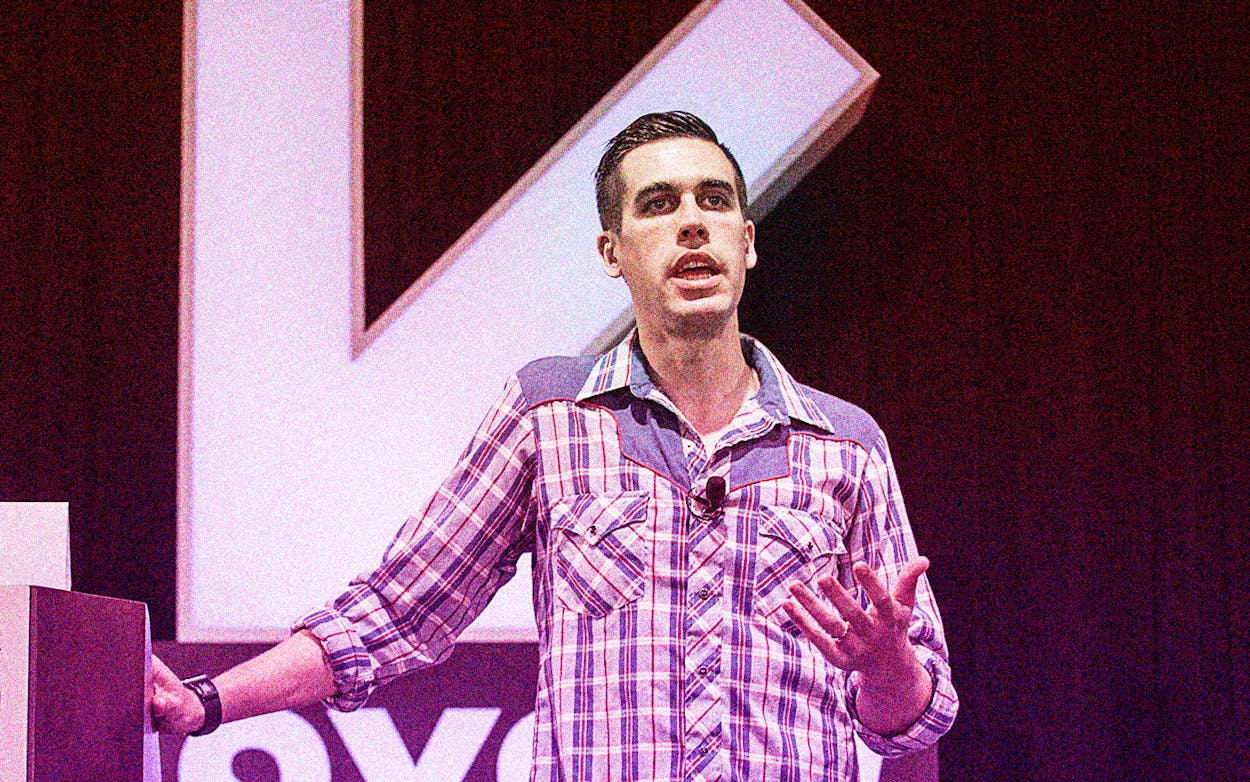Subscribe
Ryan Holiday knows it’s instinctual for people to judge books by their titles and that a lot of people who see his latest, Stillness Is the Key, in bookstores might think it’s about meditation. That the book’s flap invites readers to “unlock the potential (and the peace) that you know is within you” probably doesn’t help much. “My philosophical bent is more Western, and obviously meditation is more of an Eastern concept, but I also don’t like that meditation has become a sort of magical panacea,” says Holiday, who’s based in Austin and does consulting work for NFL coaches, athletes, TV personalities, and politicians that relies heavily on the Hellenistic philosophy of Stoicism. “I also wasn’t going to write a book that tells people to go do something that I just flat-out don’t do.”
The “stillness” at the heart of Stillness Is the Key, which debuted last month as an instant number one New York Times best-seller, is about what Holiday describes as a steadiness while the world spins around you. It’s a guidebook for cultivating an inner state that’s centered on slowing things down, clarifying your thinking, centering your soul, and directing your efforts. As with his previous best-sellers, The Obstacle Is the Way and Ego Is the Enemy—both of which also tap into tentpole concepts of Stoicism—Holiday’s guide to reaching stillness relies heavily on stories and anecdotes from high achievers across history that connect the dots between philosophy, history, marketing, culture, and, ultimately, self-improvement. On this week’s National Podcast of Texas, we discuss the quest for stillness and how it applies to a wide swath of modern culture: from Trump to Kanye, from U.S. Marines to NBA legend Michael Jordan.
Three takeaways from our conversation:
1. Holiday says some of the keys to finding stillness are slowing down, patience, setting aside distraction, and “weighing advice against the counsel of our convictions.” He’s not sure whether we have enough information yet to conclude that House Speaker Nancy Pelosi’s approach to opening an impeachment inquiry into President Donald Trump was a textbook example of stillness.
“There’s probably no one in Washington who has much in the way of stillness. Through the books, I’ve managed to meet some people who are in office, and you go and see them, and it’s like, ‘Oh, yeah, we’ll have breakfast this morning from 8:57 a.m. to 9:32 a.m.’ Their lives are scheduled down to the minute. They’re slaves to a news cycle and can’t really say what they think, what they want. I wouldn’t want to project too much stillness on Pelosi, but I do think the idea of waiting and seeing is a lost art in business life, and certainly politics. You’re seeing the older generation of politicians really sort of inter-generationally wrestling with a generation that has almost no stillness and thinks you solve problems on Twitter.”
2. Through his consulting work, Holiday came to realize that when he was visiting hubs of high-performing people, whether it was the front office of an NBA team or a Google campus, they typically shared a similar energy. It’s a calm or quiet that’s the antithesis to the freneticism you might expect in a place dedicated to important or high-profile work.
“I feel like elite performance is elite performance is elite performance. And what I’m always struck by when you talk to people who are doing things at an incredible level is how they’ll say things that if a normal person said to you, you’d say you’d think sounds really cliché. But, especially in sports, it’s like, ‘You just got to focus on what you can control.’ That seems like it can’t possibly be that. But they say it so much, I think it’s sincere, and I think what they are trying to do is reduce noise. They’re trying to focus. They’re trying to find areas of improvement. They’re trying not to get too elated by a victory and discouraged by a loss. They’re trying to manage life and family. It’s remarkably similar through all of them. And when I set out to write a book, I’m sort of picking up by osmosis what organizations are going through and then also just where I feel like I’m at in my own evolution. So I think stillness is a concept that, although it’s really timeless, is becoming more and more relevant and a topic of conversation for more and more people.”
3. Holiday says ego and our thirst for positive reinforcement on social media is an enemy of stillness. He doesn’t believe Instagram’s recent test of hiding the number of likes a post has received will do much to alter our thirst for feedback or prevent manipulation.
“Philosophically, I think it’s quite brilliant. From a media public relations standpoint, also quite brilliant. But the site is still algorithmically filtered, right? So the number of likes is not what is manipulating and warping us. Just because a photo has lots of likes, that’s to me not really what’s driving our insecurity, our divisions, our desire to post. I think on the individual level if your photo got a hundred likes or a thousand likes, that divide might affect your self-esteem. But what’s really affecting your self-esteem is that Instagram doesn’t go, ‘Here’s all the pictures your friends have posted.’ They say, ‘Here are the pictures your friends have posted that are doing the best.’ The algorithmic filtering is the subtle thing that is warping our reality on Twitter, Facebook, and Instagram. So they’re not doing anything about that. So to me this is a very symbolic, meaningless gesture. Sure, it’s step in the right direction, but what you’re seeing on Instagram is not going to change. What you’re seeing on Instagram is still going to be beach photos and beautiful women and nice cars, because that’s what people react to. And that’s what drives engagement. And that’s still fundamentally where they manipulate us.”






